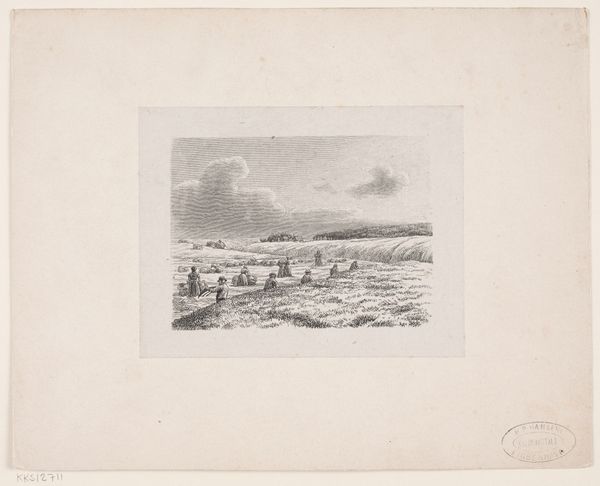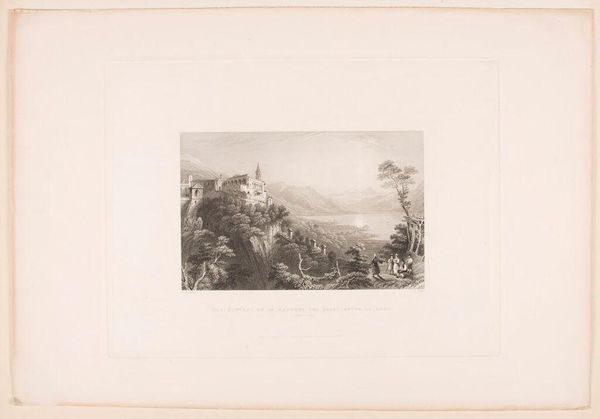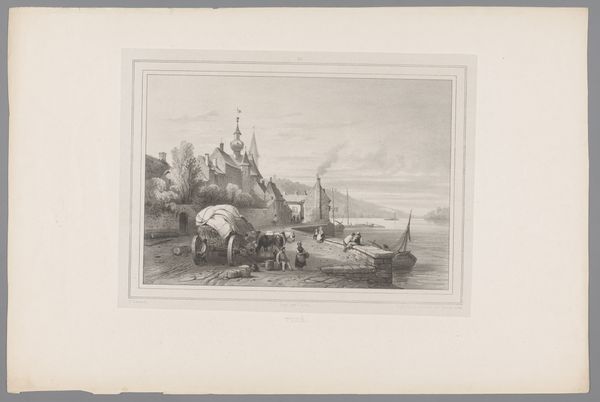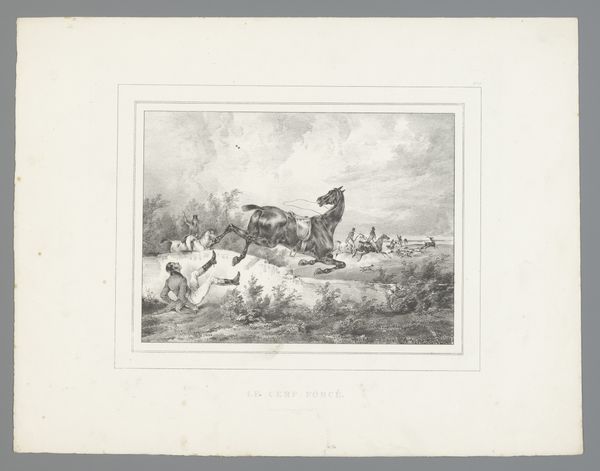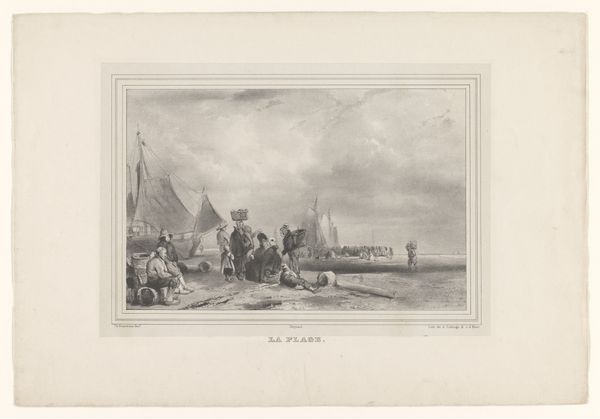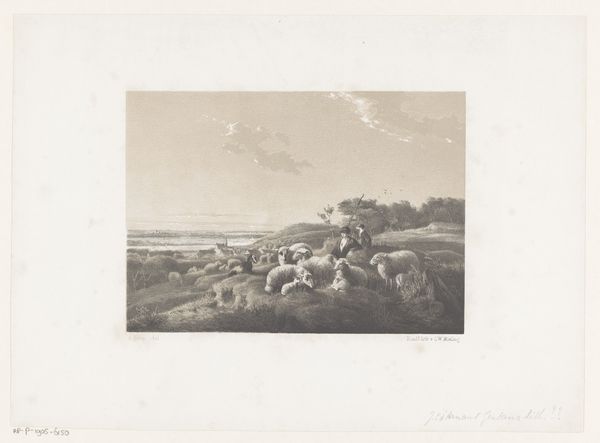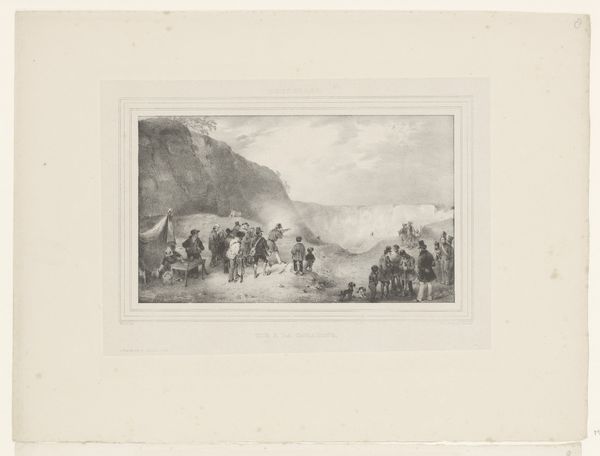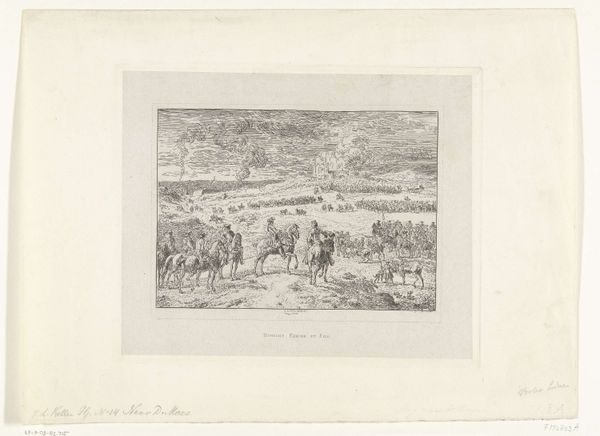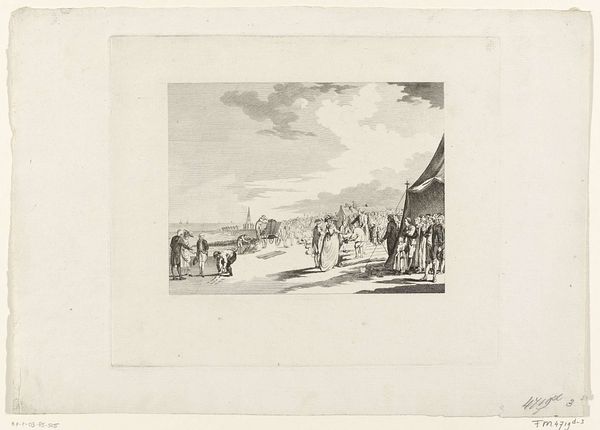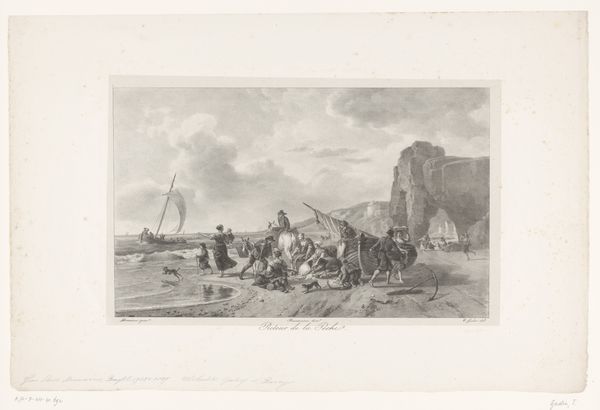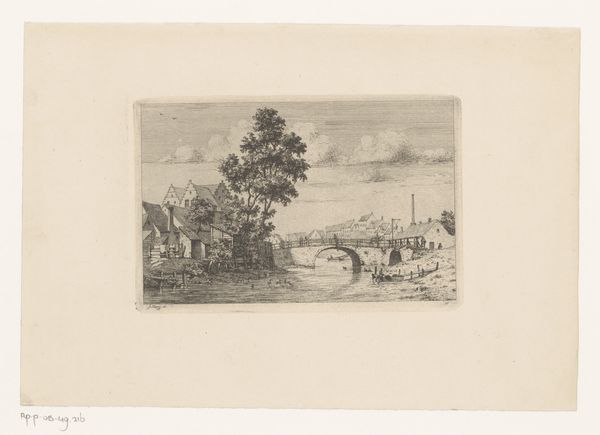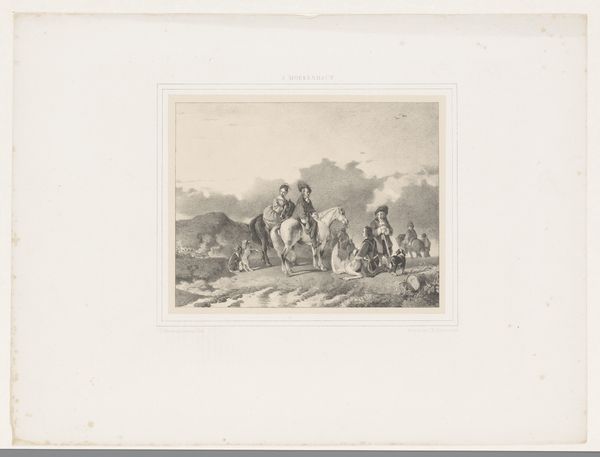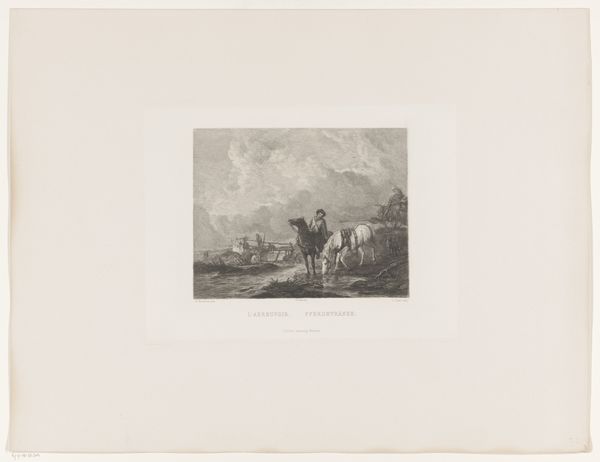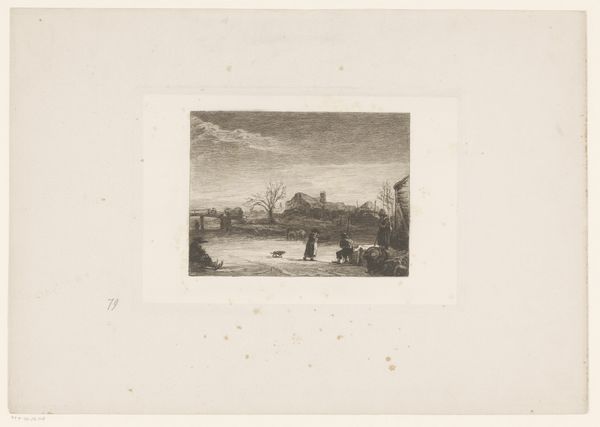
print, engraving
# print
#
landscape
#
romanticism
#
history-painting
#
engraving
Dimensions: height 272 mm, width 362 mm
Copyright: Rijks Museum: Open Domain
Jan Dam Steuerwald created this lithograph of the shipwreck of the steamship Willem I in 1837. It's made from a limestone printing plate, with a design rendered in greasy crayon, and then printed. This process allowed for a more direct, hand-drawn quality than traditional engraving. The lithograph medium itself is significant. It offered a relatively inexpensive way to reproduce images, enabling wider distribution and consumption of art. This coincided with the rise of industrial capitalism and a growing middle class eager for affordable art. In this image, we see a dramatic scene of maritime disaster, the survivors huddled on rocks amidst turbulent waves. The steamship itself, a symbol of industrial progress and ambition, is now a broken wreck. The artist captured the scene with stark contrasts of light and shadow, emphasizing the chaos and vulnerability of human life against the forces of nature. By focusing on this event, Steuerwald perhaps invites us to reflect on the human cost of progress and the power of nature to humble even the most ambitious endeavors. Lithography democratized image-making, mirroring the shifts in power dynamics of the era.
Comments
No comments
Be the first to comment and join the conversation on the ultimate creative platform.
